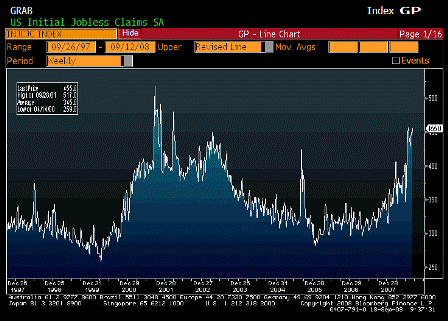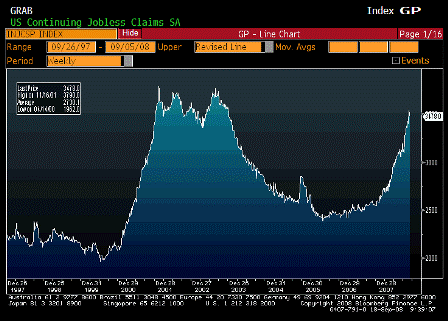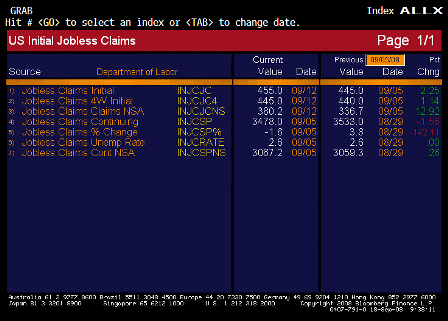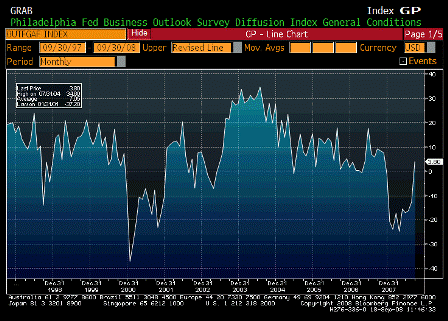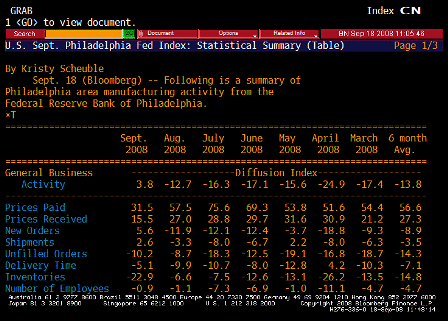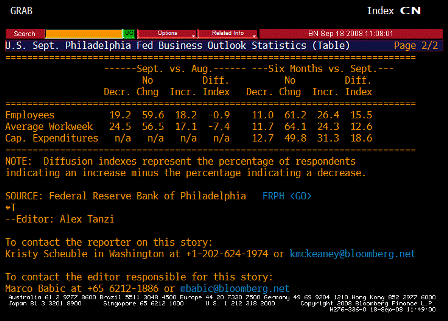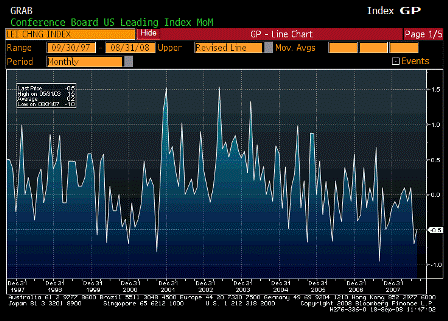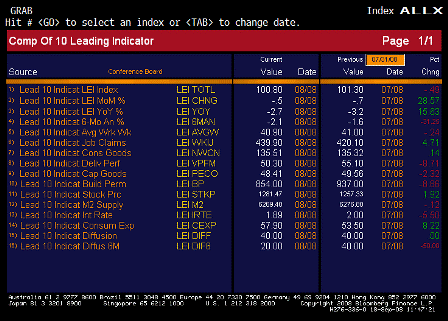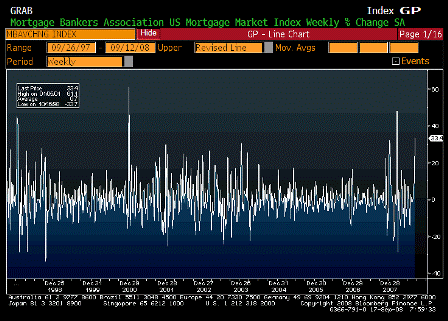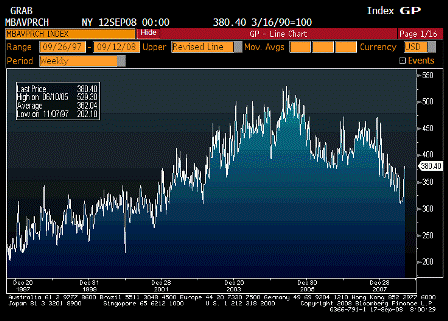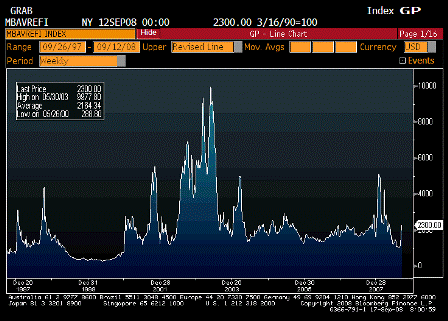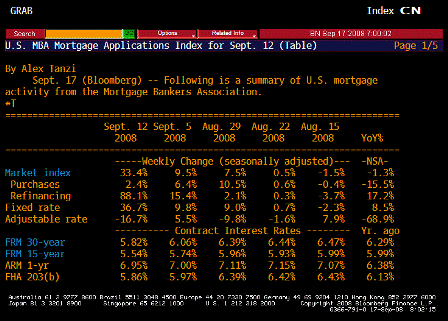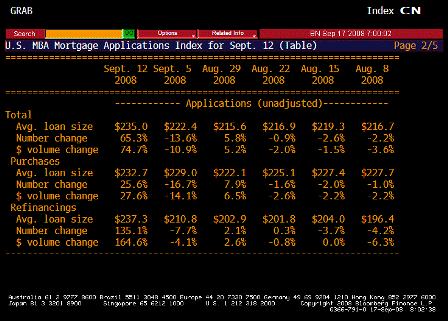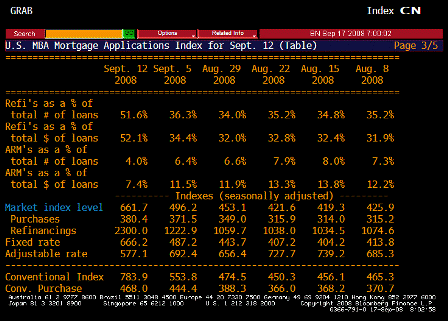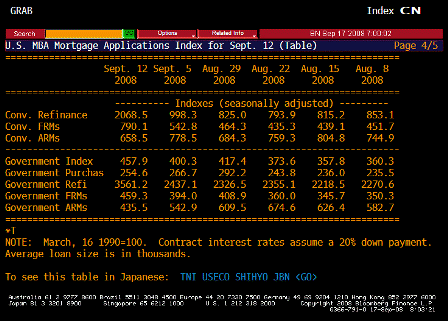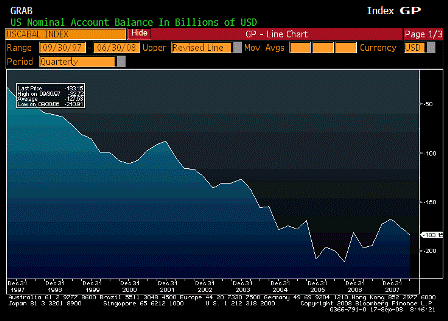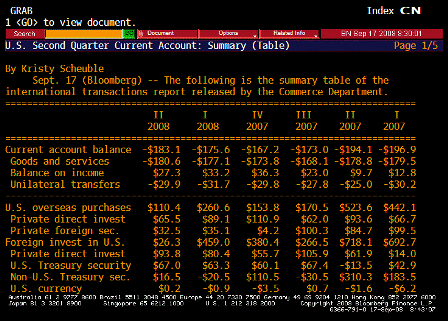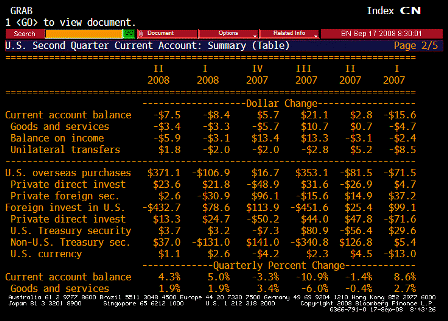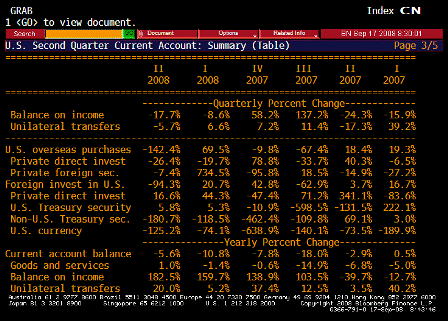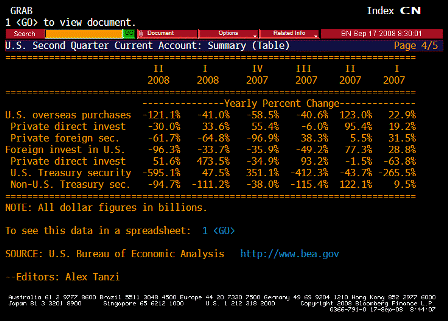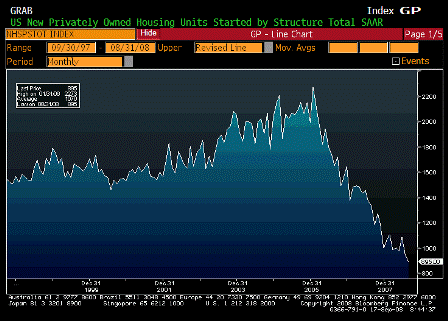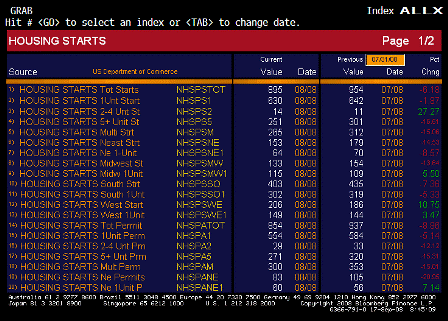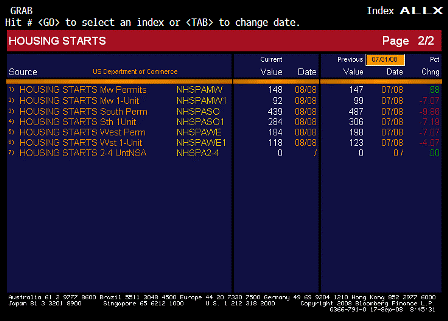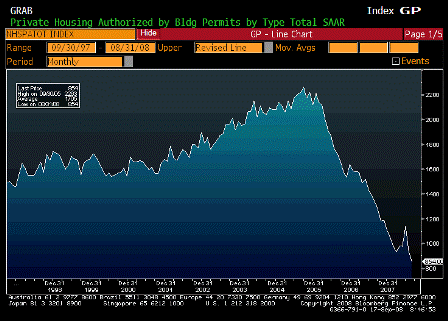[Skip to the end]
From the last two paragraphs it looks like another fiscal package is on the way?
Interesting how little damage to the real economy it takes to trigger a fiscal response – GDP last printed at 3.3% and the relatively modest job losses are not nearly enough to have triggered a fiscal response in the past from either party?
So it seems behind the rhetoric the Democrats in Congress are in fact reacting more to financial sector needs.
Probably because, like the Republicans, most of their constituents are also shareholders.
The move to broaden shareholdings has had profound political ramifications that has undercut the previous agendas of both parties.
A few months ago the far left in Congress was congratulating the Fed chairman for keeping inflation expectation well contained even as other prices were rising, after it was explained that this meant keeping wages in check.
Since when doe the ‘far left’ praise a Fed chairman for suppressing wages, especially when the cost of living is on the rise???
Having a nation of shareholders seems to have redirected overall public purpose?
The 30% corporate income tax means the government already ‘better than ownes’ 30% off all the US based equity- it’s the direct pipe, and easily increased or decreased by decree.
Equity held at this level has very different political effects than individual ownership of shares.
Yet there is no discussion of any of this, anywhere in the public debate.
Meanwhile, crude seems to be acting like the ‘Master’s inventory liquidation’ may have run its course and the Saudis are again moving prices back up as demand for their output remains firm and their excess capacity is too thin for comfort.
This drives down the USD, making our stocks ‘cheaper’ to foreigners, so look for more foreign takeovers, which will be spun as the US ‘needing’ foreign borrowers and being ‘rescued’ by them.
Washington, DCâ€â€ÂSenate Majority Leader Harry Reid made the following statement today on the floor of the U.S. Senate. Below are his remarks as prepared for delivery:
“On the morning of October 30, 1929, President Herbert Hoover awoke the day after the biggest one-day stock market crash in American history, surveyed the state of the U.S. economy and declared, ‘The fundamental business of the country, that is production and distribution of commodities, is on a sound and prosperous basis.’
“In the coming weeks and months, President Hoover remained in an economic bubble, unaware of the extreme suffering of ordinary Americans – even declaring that anyone who questioned the state of the economy was a ‘fool.’ For Herbert Hoover, ignorance was bliss. And it wasn’t until the American people replaced this out of touch Republican president with a Democrat, Franklin Roosevelt, that our nation’s economic recovery began.
“Yesterday, nearly 80 years after the Hoover Administration took America with blissful ignorance into depression, the Dow Jones Industrial Average dropped more than 500 points – the biggest one-day decline since trading opened after the attacks of 9/11. With one major investment bank headed for bankruptcy, another sold at a bargain-basement price, and one of the world’s largest insurance companies teetering, investors rushed to sell their shares.
“With our financial markets reeling, the American people are wondering whether they will lose their jobs, whether they will be able to pay their child’s next tuition bill, whether their pension and retirement savings will be safe.
“There is no reason to think we are headed into an economic depression. There is no reason to panic. Yet one Senator – John McCain – woke up yesterday morning, surveyed the state of the U.S. economy, summoned the ghost of his fellow Republican, Herbert Hoover, and declared, ‘The fundamentals of our economy are strong.’
“For whom are the fundamentals of our economy strong? Not for the 606,000 Americans who have lost their jobs this year alone. Not for the commuters and truckers who are sending more and more of their hard-earned dollars to pay for fuel. Not for all those struggling to make one pay check last until the next, with record hme heating prices looming in the coming winter months. Not for cities and towns that have been forced to cut back on police, schools and firefighters because their tax base is shrinking. And certainly not for the millions of families who have or may soon lose their homes, or for the tens of millions who are seeing their home equity plummet.
“No matter what George Bush, John McCain or the ghost of Herbert Hoover may think, this economy is not strong, and the American people deserve better.
“This is not a time for panic. But it is a time to look back on the past eight years of Bush-Hoover-McCain economics and figure out what brought us to this point so that we don’t repeat the same mistakes. And the tragic truth is that this disaster was avoidable. In its palpable disdain for all things relating to government, the Bush/Cheney Administration willfully neglected the government’s most important function: to safeguard the American people from harm.
“In their simplistic philosophy of ‘big business equals good, government equals bad,’ the Administration and the Republican Congress failed to conduct oversight and let the financial sector go wild. Without anyone regulating their actions, market excess destroyed the financial prudence that allowed a firm like Lehman Brothers to prosper for 158 years. Vast fortunes were made virtually over night, and now vast fortunes have been lost literally over night.
“The unfortunate irony is that the Bush Administration’s zeal to favor big business has now crippled it – and left the American people to pay the price. President Bush did nothing to stop this disaster, and now it’s clear he’ll leave the mess to the next president.
“Now our nation must decide who is better suited to end Bush-Hoover economics and return sanity and security to our economy. Senator McCain says the economy is not his strong suit, so he went searching for an economic advisor who could bolster his weakness. Who did he choose? Former Senator Phil Gramm. The same Phil Gramm who, as a Senator, was responsible for deregulation in the financial services industries that paved the way for much of this crisis to occur.
“A respected economist at the University of Texas, James K. Galbraith, said that Gramm was ‘the most aggressive advocate of every predatory and rapacious element that the financial sector has’ and that ‘he’s a sorcerer’s apprentice of instability and disaster in the financial system.’
“It was Phil Gramm who pushed legislation through a Republican Senate that allowed firms like Enron to avoid regulation and destroy the life savings of its employees, and it was Phil Gramm’s legislation that now allows Wall Street traders to bid up the price of oil, leaving us to pay the bill. Warren Buffet called the result of Gramm’s legislation ‘financial weapons of mass destruction.’ And now, the architect and leading cheerleader for every mistake and neglect that created the Bush/Cheney financial nightmare is whispering into the ear of John McCain – who says he doesn’t know much about the economy.
“Whether you call it Hoover economics, Bush economics, or McCain economics, it is not a recipe for change – it’s a recipe for more of the same.
“For all of the college students worried about finding a job, the working families who don’t know how they’ll pay the bills, and the fixed-income senior citizens trying to figure out how to pay for medicine, we must do better.
“We can’t afford another Republican president who will follow his party’s ghosts down the path of recession, depression and more suffering. We desperately need a president who understands that working people, not industry titans, are the backbone of our economy. We need a president who will cut taxes for working people and senior citizens; end the windfall profits of oil companies and put that money back into the pockets of those who are paying record prices at the pump; and put millions of Americans back to work by investing in jobs on Main Street, not Wall Street.
“In November, we can elect that President who will break from the past and invest in the future. Until then, the Senate should pass a second economic stimulus plan that funds infrastructure projects that will create jobs; prevents cuts in desperately-needed state services; and invests in renewable energy, expanded unemployment benefits for victims of the Bush-McCain economy, and helps working people and senior citizens afford the costs of energy.
“I expect the House of Representatives to pass a stimulus bill in the coming days. When it arrives in the Senate, I hope it will be embraced by Senators from both parties as a critical first step on the long road from economic ruin toward economic recovery.â€ÂÂ
[top]
